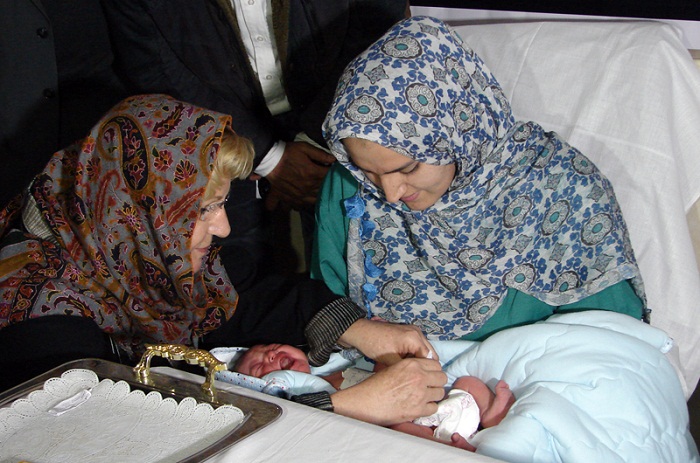By Akhtar M. Nikzad-KABUL: The Ministry of Public Health (MoPH) on Wednesday launched the use of chlorhexidine to reduce newborn infections and deaths during the critical first week after birth.
Chlorhexidine is a medicine tube. The ointment is used for one week to treat the newly cut umbilical cord.
This is the first medicine for prevention of infections through umbilical cord that the ministry of public health introduced to the health workers. It is expected to be launched in ten provinces of the country. In the next two years the use of this cream will be extended to majority parts of the country.
This program was launched with financial support of the UNICEF in Afghanistan to reduce the infant mortality rate in the country. Afghanistan has the highest child mortality rate in the region.
At the event took place at the Indira Gandhi Institute of Child Health, the deputy minister of health Ahmad Jan Naeem said that majority of births take place in home. Due to existence of viruses, 26.4 percent of newborns lose their life.
He said that for prevention and reducing of newborns mortality, the MoPH introduced chlorhexidine cream to the health workers. “The new medicine can play a significant role in accelerating the treatment and reducing the infant mortality rate, both in a residence and in healthcare centers.”
The deputy minister said that UNICEF and the MoPH would launch the use of chlorhexidine in the ten provinces and then it would be extended to all provinces of the country in the next two years.
Nadeem added that the ministry of health also planned to include the new drug in the list of legal medicines so it could be imported and distributed.
Chief of the maternal and child health department at the ministry, Zeliakha Anwari, said that the UNICEF has provided about 20,000 tubes of chlorhexidine to the ministry.
She added that use of chlorhexidine in the first week of birth results to protect baby from different infections.
“In the first phase, we want to initiate distribution of the medicine in ten provinces including Badghis, Bamyan, Daikundi, Ghor, Helmand, Kandahar, Paktika, Paktia, Zabul and Urozgan,” she said.
The UNICEF Regional Director for South Asia, Karin Hulshof, said: “It is tragic when a newborn baby dies within the first month of life. It is tragic that one million newborns die every year in South Asia while 70 percent of newborn deaths are preventable.”
She said that UNICEF is committed to save 250,000 additional newborn lives in South Asia by 2017, adding that the goal is to reduce newborn mortality rate from 30 percent in 1000 in 2013 to 25 percent in 1000 live births in 2017.
 Afghanistan Times
Afghanistan Times




